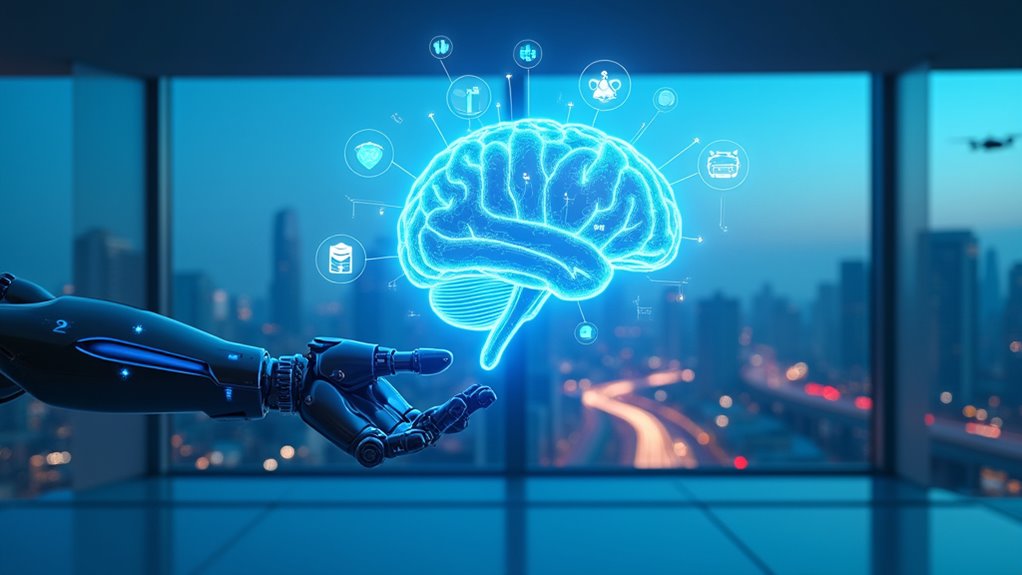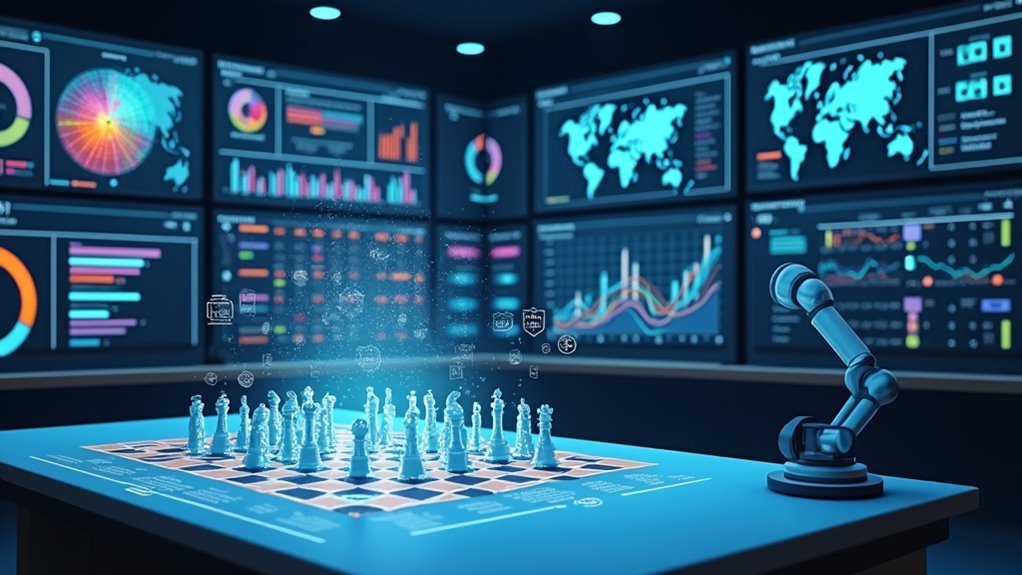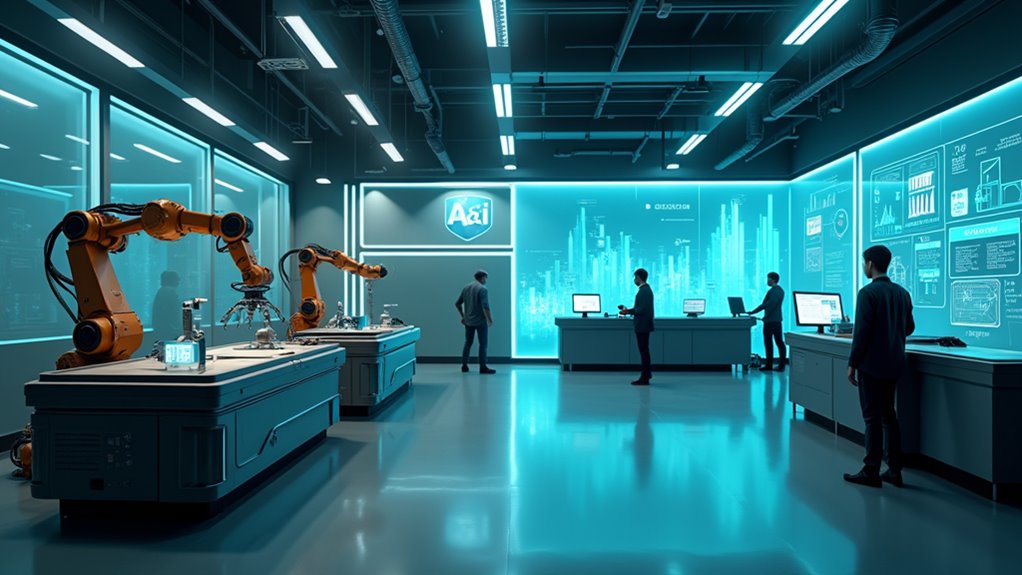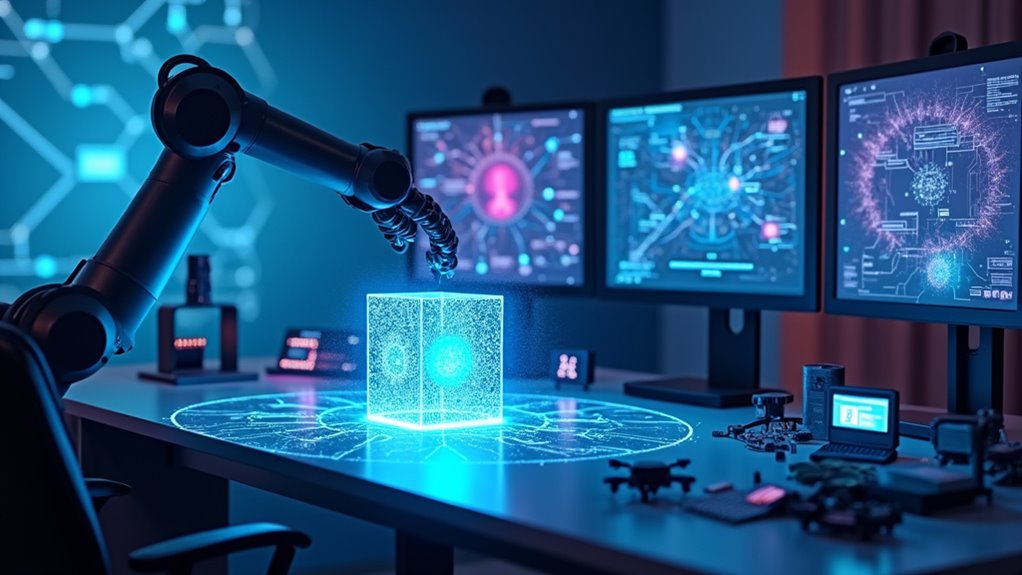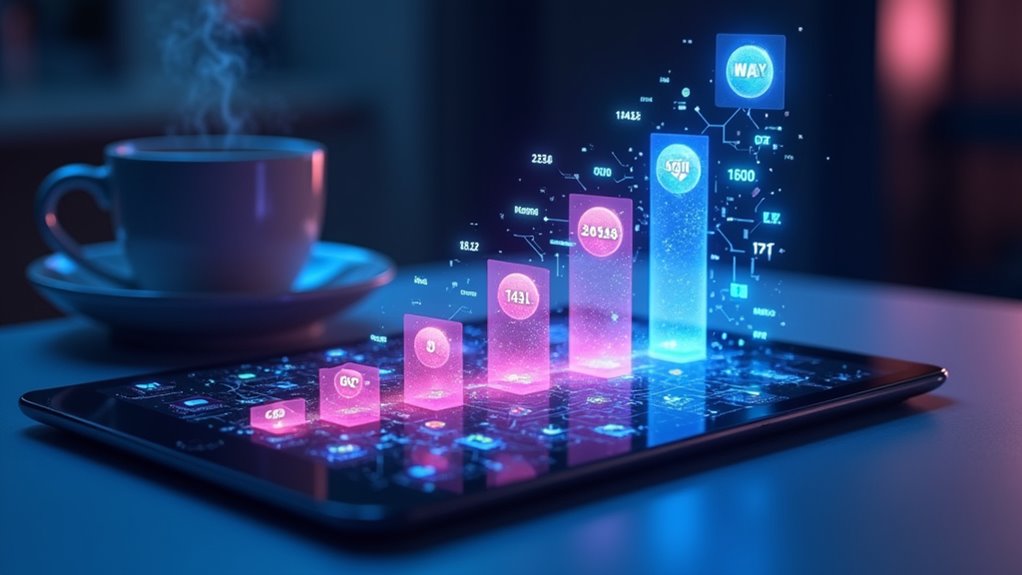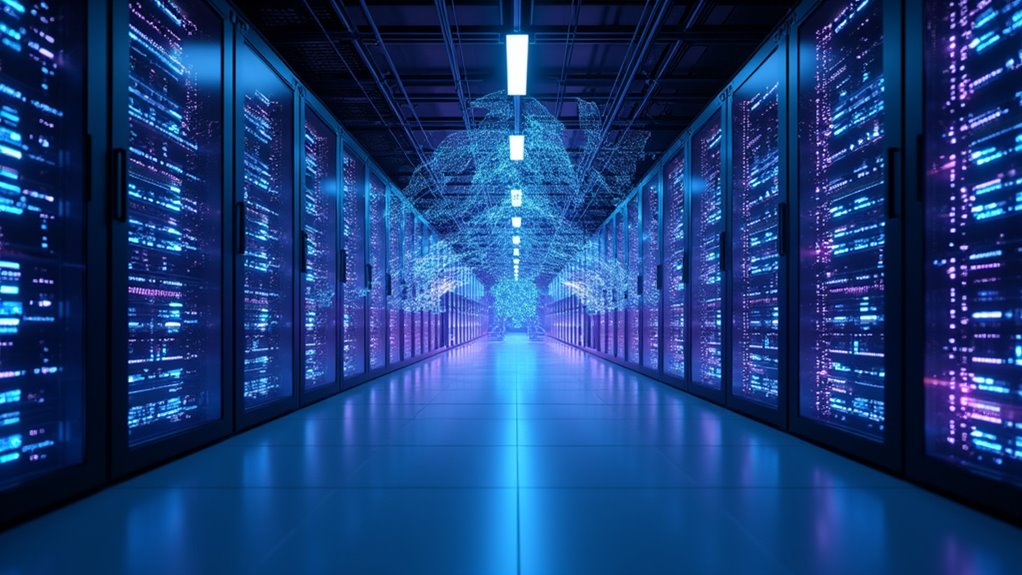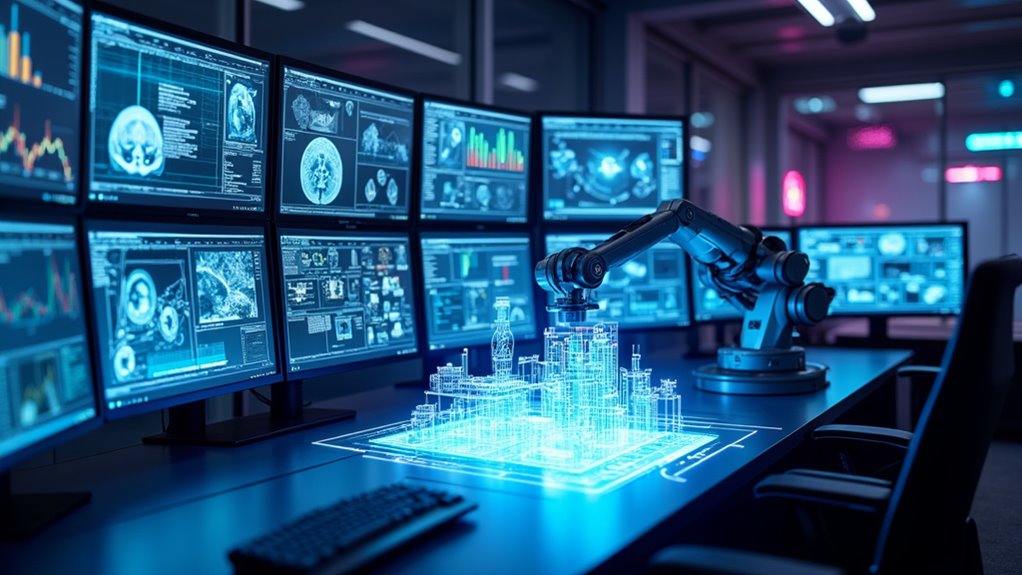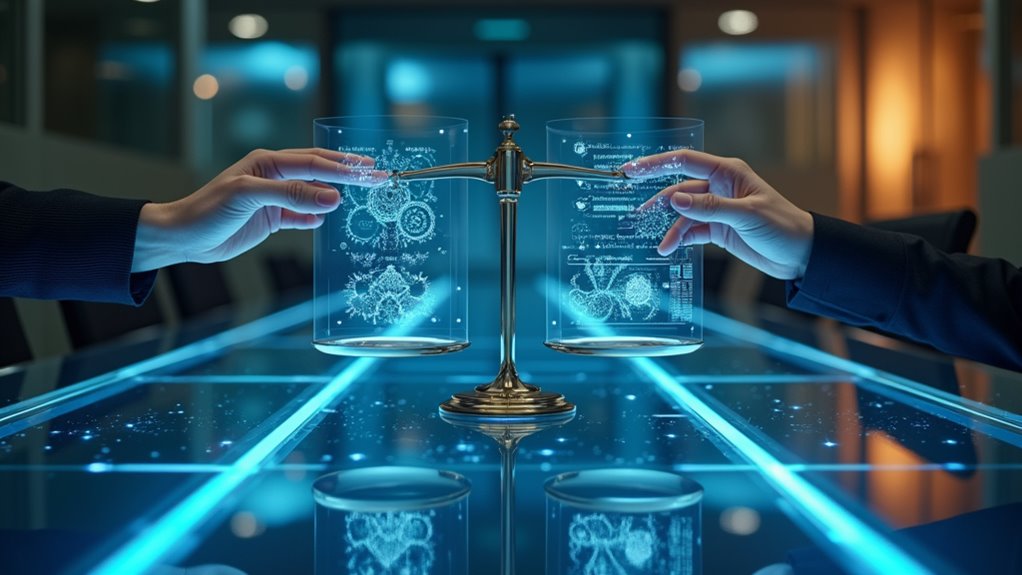AI’s future extends beyond science fiction into everyday reality. By 2030, it’s projected to add $4.4 trillion to the global economy while transforming jobs rather than simply eliminating them. Human-AI collaboration will define workplaces as narrow AI evolves into broader applications. Healthcare will see personalized medicine and earlier disease detection, while ethical governance becomes increasingly critical. Your ability to adapt alongside these technologies—not fight against them—will determine your success in this inevitable shift.

As humanity stands at the precipice of a technological revolution, artificial intelligence continues its relentless evolution from science fiction fantasy to everyday reality. The current landscape shows AI already embedded across industries, from healthcare diagnostics to financial forecasting. Narrow AI excels at specific tasks, while broader applications loom on the horizon.
AI Governance frameworks will determine how these systems operate within society—and who controls them. Job Transformation isn’t just coming; it’s happening now. Some manual positions will vanish, yes, but new roles requiring human-AI collaboration will emerge. The question isn’t whether your job will change, but how quickly you’ll adapt.
The future of work isn’t about survival—it’s about adaptation. AI isn’t replacing humans; it’s redefining our roles.
Autonomous Systems are advancing beyond simple automation. Self-driving vehicles, once a distant dream, now navigate our streets. Industry Disruption follows, reshaping everything from manufacturing to creative fields. Companies that ignore this shift? They’ll be as relevant as typewriter manufacturers in the smartphone era.
AI Ethics remains the elephant in the room that tech companies pretend not to see. Biased algorithms don’t appear by accident—they reflect the data we feed them. Organizations are increasingly calling for stronger government regulations as concerns about deepfakes and algorithmic bias continue to grow. Addressing these concerns demands vigilance, not just from developers but from all of us who use these technologies.
The economic forecast shows massive investment growth in AI development. This isn’t just Silicon Valley hype; it’s serious capital betting on transformative potential. By 2030, AI is expected to add approximately USD 4.4 trillion to the global economy. Educational institutions must respond, creating programs that prepare workers for collaboration with intelligent systems rather than competition against them.
Healthcare applications will likely see dramatic advances, with AI-assisted diagnostics becoming standard practice. Personalized medicine, based on individual genetic profiles analyzed by AI, offers targeted treatments previously impossible. In medical settings, predictive analytics enables early disease detection when interventions are most effective, potentially saving countless lives.
For average citizens, AI’s future means more personalized experiences across daily life—sometimes helpful, sometimes intrusive. The technology itself is neutral. Its impact depends entirely on human choices about deployment, regulation, and purpose. The power isn’t in the algorithm; it’s in the hands that guide it.
Frequently Asked Questions
Will AI Ever Truly Understand Human Emotions?
AI’s current emotion recognition capabilities are impressive but limited.
While machines can analyze facial expressions and text for emotional cues, they merely simulate empathy rather than genuinely feel it.
Think of it as memorizing a cookbook without tasting the food!
Future AI might get closer to understanding emotions through advanced neural networks, but true comprehension requires consciousness—something AI lacks.
Will they ever cross that threshold? Researchers remain divided, but the gap between recognition and understanding persists.
How Will AI Impact Wealth Inequality?
AI is poised to deepen wealth inequality, folks. Job displacement will hit low-skilled workers hardest while the tech-savvy thrive.
Economic polarization? It’s already happening as capital owners reap massive rewards. The access disparity between those who control AI and those who don’t creates a widening chasm.
And that skill gap? It’s becoming a canyon. Without intentional policies to distribute AI’s benefits, we’re heading toward a society of digital haves and have-nots.
Can AI Develop Consciousness or Self-Awareness?
Machine consciousness remains a theoretical frontier, not a current reality.
While AI systems can mimic awareness through sophisticated programming, true self-awareness development would require something beyond today’s algorithms.
Scientists debate whether consciousness emerges from complexity alone or requires biological substrates.
Could your phone feel anything when you ignore its notifications? Not likely.
Some experts believe conscious AI might eventually emerge, but for now, your virtual assistant isn’t secretly contemplating its existence while setting your timer.
What Ethical Frameworks Should Govern AI Development?
Ethical frameworks for AI development should blend multiple governance models to address complex challenges.
Companies can’t just shrug and say, “Oops, our algorithm did it!” Robust ethical considerations must include transparency (let us see how it works!), fairness (no playing favorites with data), and accountability (someone’s gotta take responsibility).
These frameworks aren’t just nice-to-haves—they’re essential guardrails preventing AI from crossing dangerous boundaries while still allowing innovation to flourish.
How Will Religions Adapt to Superintelligent AI?
Religions will likely undergo spiritual evolution as they face superintelligent AI, adapting their doctrines to accommodate this new reality.
Some traditions will embrace faith integration, incorporating AI into worship practices, while others will establish boundaries.
Theological debates will emerge about AI consciousness and souls.
Ultimately, religions that survive will reinterpret their core texts to address AI’s role in creation stories.
Those that can’t adapt? They’ll simply fade as their explanations become increasingly irrelevant to followers seeking meaning.
